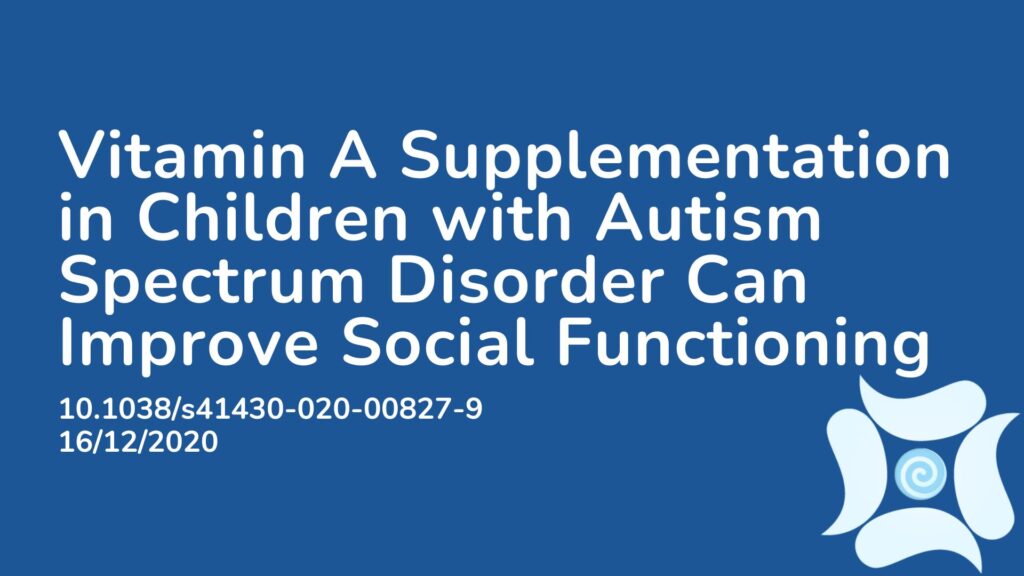Summary:
Research shows that children diagnosed with Autism Spectrum Disorders (ASD) often have a vitamin A deficiency. This study aimed to compare vitamin A supplementation approaches among children with ASD and vitamin A deficiency to identify an optimal vitamin supplementation program and assess the impact of correcting the deficiency. A cohort of 138 children aged 3-8 with ASD participated in a 6-month trial. Among them, 82 had a vitamin A deficiency and were assigned to either the recommended national program or a weekly vitamin A supplement dosage. The remaining 56 children had normal vitamin A levels and constituted the control group. Social impairment severity was assessed using the Social Responsiveness Scale (SRS) before and after interventions. Serum retinol (vitamin A) and oxytocin levels were measured pre- and post-intervention. The findings showed that weekly vitamin A supplementation significantly increased vitamin A levels and notably reduced SRS scores. The authors concluded that a weekly vitamin A supplementation regimen was more effective than national guidelines for children with ASD and a vitamin A deficiency, and that enhancing vitamin A levels improved social functioning.
Abstract:
Background: Children in China with Autism Spectrum Disorders (ASD) are prone to vitamin A deficiency (VAD). The present study compared two vitamin A supplements (VAS) in two groups of children with ASD and VAD to explore a better VAS program for children with ASD. Method: A total of 138 3–8-year-old children with ASD (118 males and 20 females) were enrolled in this 6-month study. Of these 138 children, 82 who had VAD (ASD-VAD) were divided into two VAS groups that received the recommended VAS program (RNI-VAS) or a weekly dose of VAS (WD-VAS). The 56 children who had normal vitamin A levels (ASD-VAN) served as a control group. The Social Responsiveness Scale (SRS) was used to assess the severity of social impairment before and after the interventions. Their serum retinol (VA) and oxytocin (OXT) concentrations, the mRNA expression of retinoic acid receptors (RARs), and CD38 gene in peripheral blood was measured before and after the 6-month intervention. Results: The WD-VAS program increased VA levels better than the RNI-VAS program did (P < 0.01), and it significantly decreased SRS scores (P < 0.05). In addition, the change in VA was positively correlated with the change in mRNA levels in RARβ (r = 0.2441, P = 0.0092), the CD38 in PBMC (r = 0.2729, P = 0.0033), and the change in OXT concentration in serum (r = 0.3735, P < 0.0001). VA was also negatively correlated with changes in SRS scores across the three groups (r = −0.2615, P = 0.0026). Conclusion: The WD-VAS might be more suitable for children with ASD and VAD than other interventions to improve both VA and social functioning, which may be mediated through the RARβ-CD38-OXT axis.
Article Publication Date: 16/12/2020
DOI: 10.1038/s41430-020-00827-9



